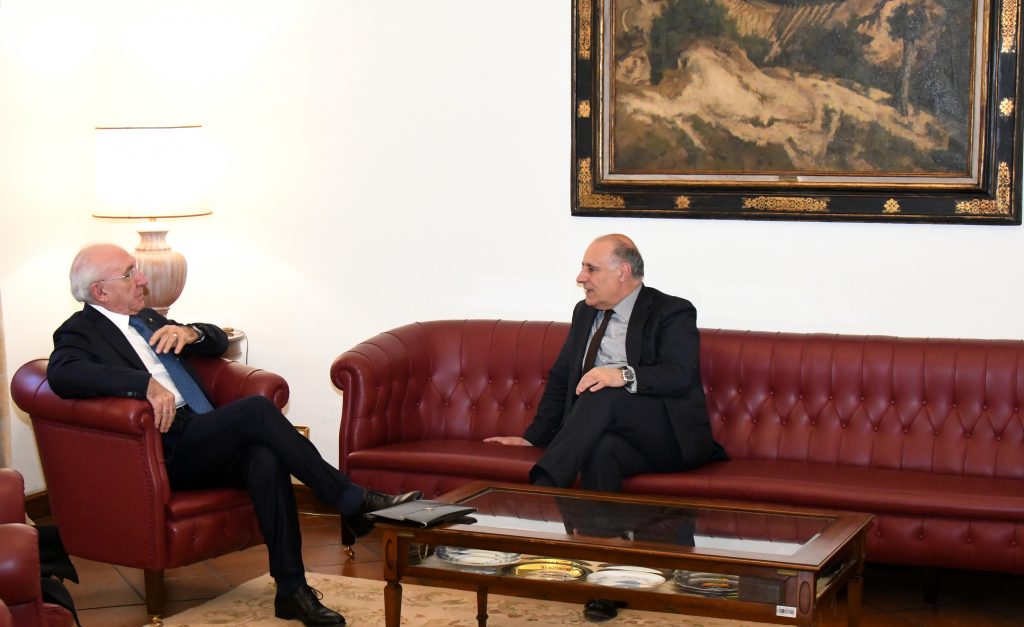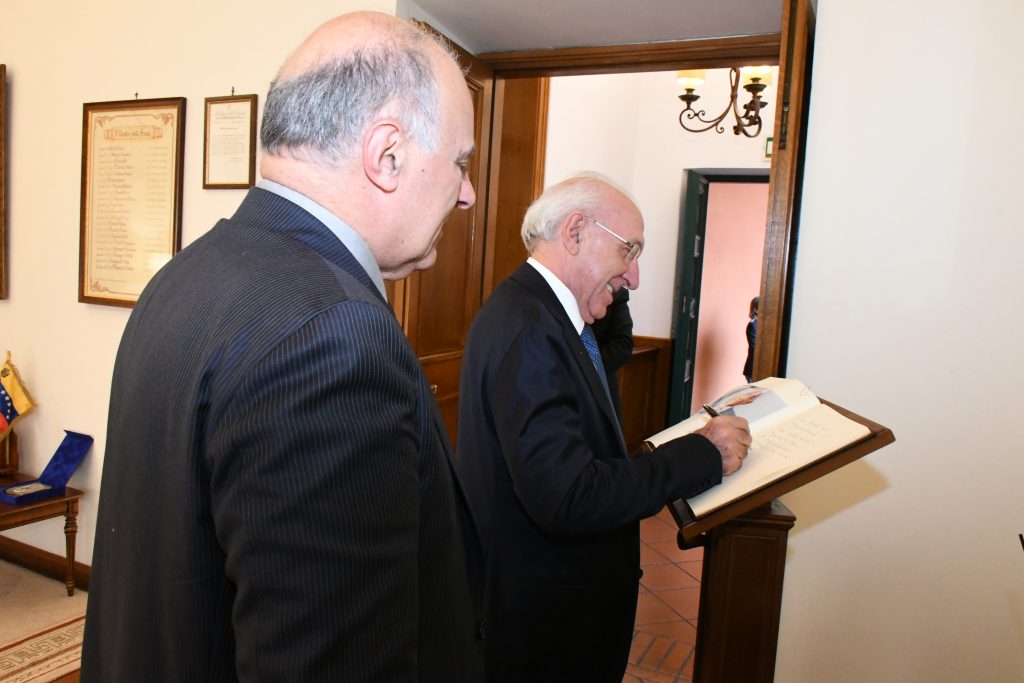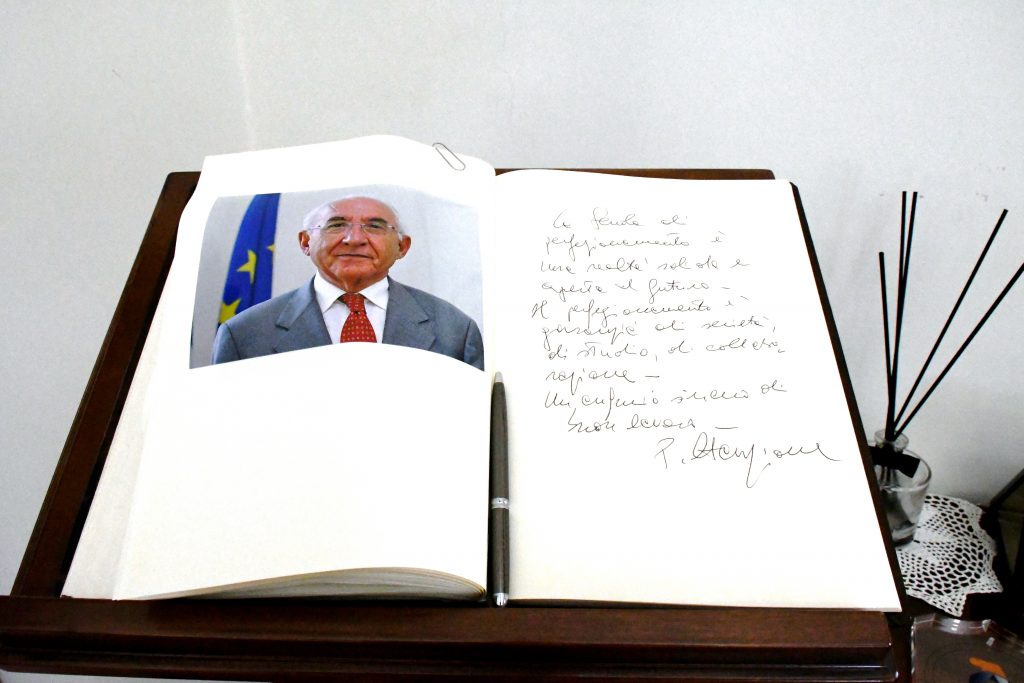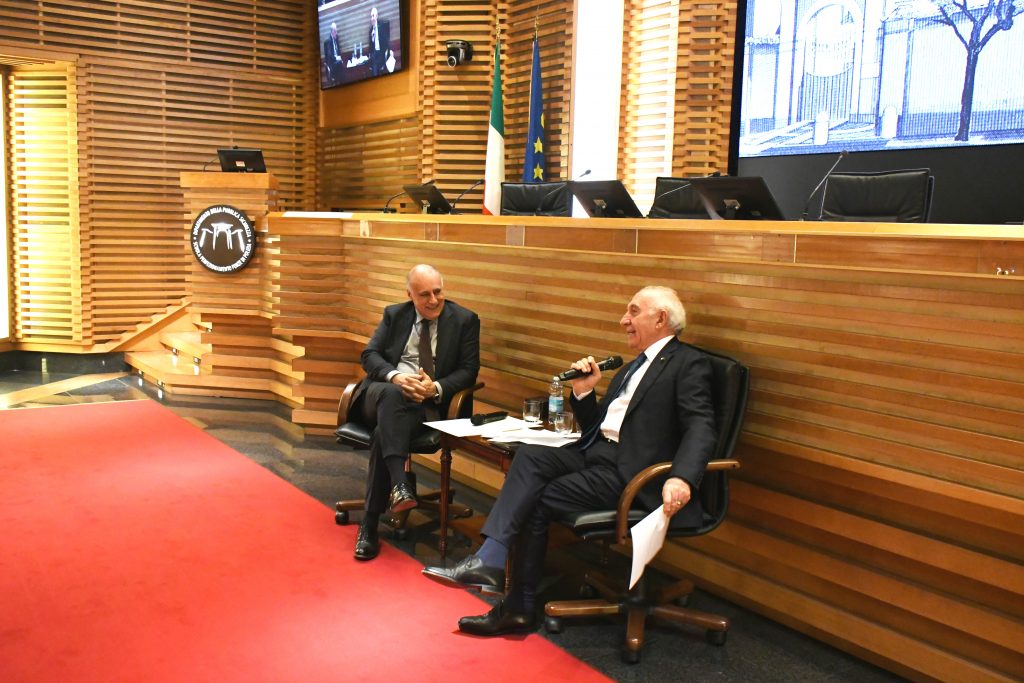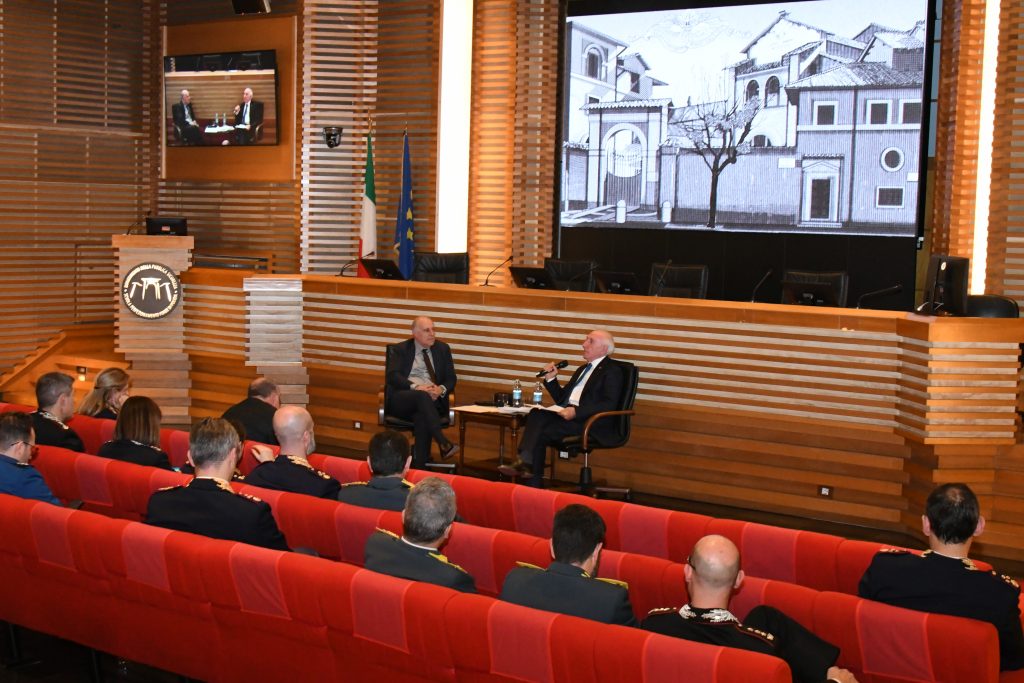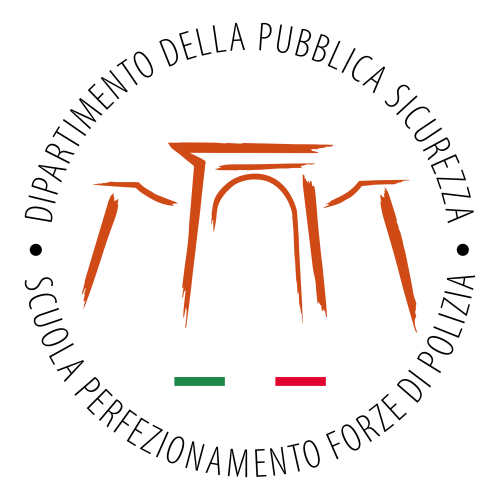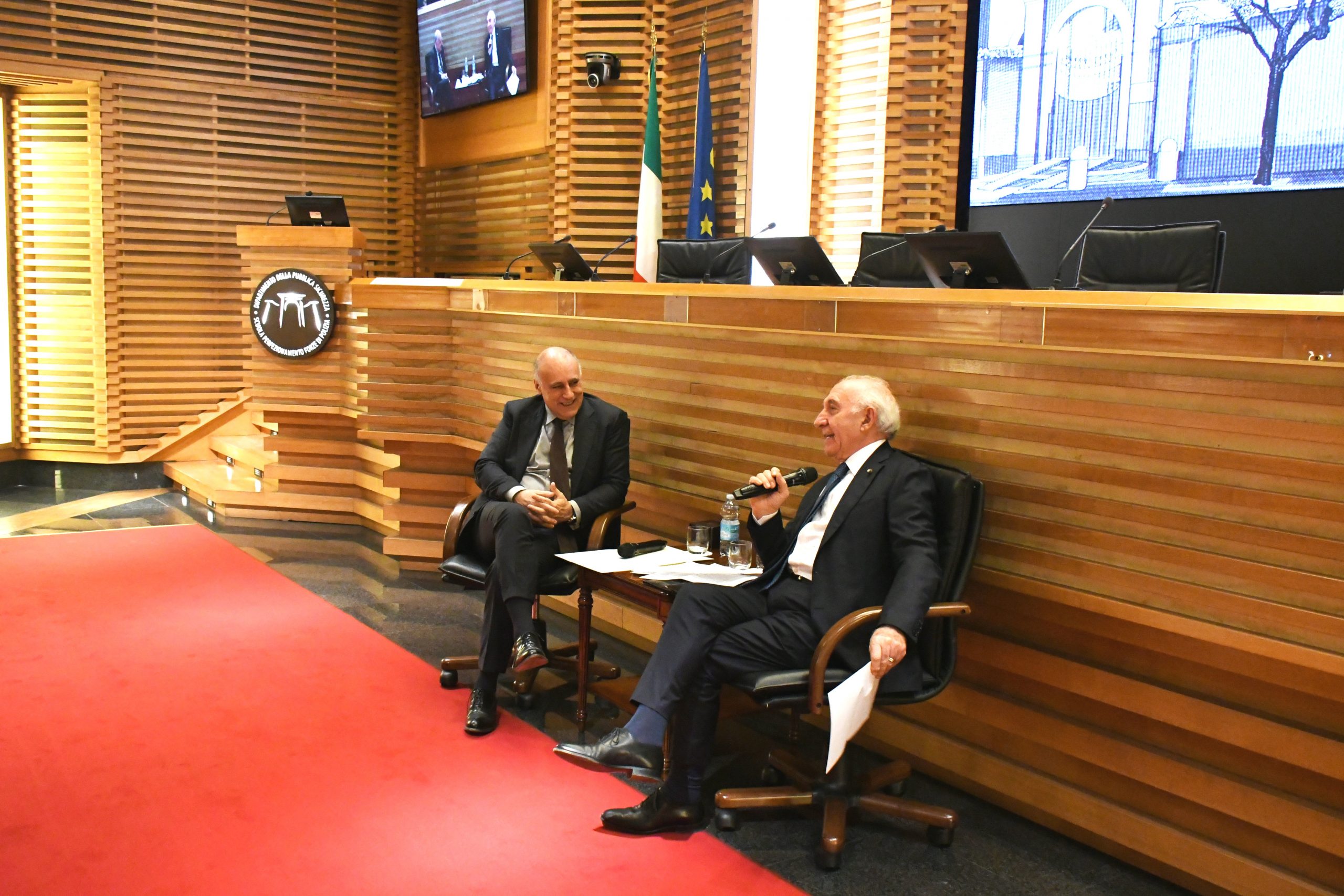In the afternoon of 21 February 2024, the Scuola di Perfezionamento Director, National Police Dirigente Generale Maurizio Vallone, met and interviewed Professor Pasquale Stanzione, President of the Data Protection Authority. This meeting was held at the “Prefetto Carlo Mosca” Conference Hall of this Institute.
After expressing his thanks to Professor Stanzione, Director Vallone recalled that the Attorney General of the Court of Cassation Luigi Salvato, on the occasion of his lecture delivered for the opening ceremony of Academic Year 2023/2024, held at the Scuola di Perfezionamento on the topic “Presumption of innocence, communication and training”, had emphasized the difficult relationship between the right to privacy and the right to information, which, together, bring about a correlation among the mutual rights and duties of citizens, law enforcement agencies, magistrates and mass media.
Professor Stanzione pointed out that the task of the Data Protection Authority is previsely to identify critical issues and violations of privacy rights.
After thanking the trainees attending the meeting and answering the questions addressed by the Director, the President illustrated the activity carried out by the Office of the Data Protection Authority as well as the tasks entrusted to it. He described it as one of the few authorities, if not the only one, that has a cross-cutting and peculiar competence. It does not have regulatory functions, but it is entrusted with the protection of a fundamental right: privacy.
The Data Protection Authority is a collegial body composed of four members designated by Parliament by limited vote, serving a seven-year non renewable term.
The President described a particular area of privacy, the one concerning the relationship between privacy and neuroscience, thus highligthing the dangers of what he called “neurocapitalism”.
Il Garante per la protezione dei dati personali è un organo collegiale, composto da quattro membri eletti dal Parlamento a voto limitato, i quali rimangono in carica per un mandato di sette anni non rinnovabile.
Il Presidente ha descritto un particolare settore della privacy, quello delle relazioni tra privacy e neuroscienza, mettendo in luce i pericoli di quello che è ha definito il “neurocapitalismo”.

